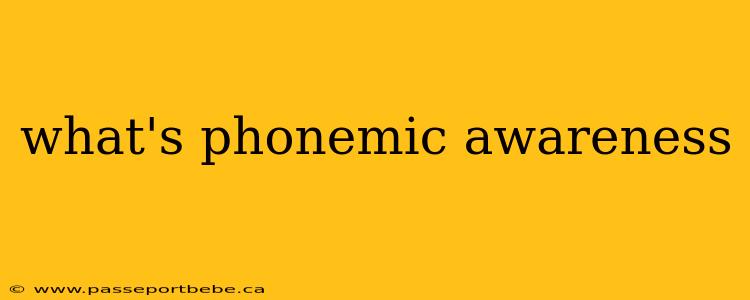Phonemic awareness is a critical aspect of early literacy development that involves the ability to hear, identify, and manipulate individual sounds—known as phonemes—in spoken words. This skill is essential for learning to read and write, as it lays the foundation for understanding the relationship between sounds and letters.
The Importance of Phonemic Awareness
Phonemic awareness is vital for several reasons:
1. Foundation for Reading
Understanding phonemes helps children decode words while reading. When children can recognize and manipulate sounds, they can break down words into manageable parts, making the reading process smoother.
2. Spelling Skills
Phonemic awareness also enhances spelling abilities. By knowing how sounds correspond to letters, children can spell words more accurately. This understanding helps them when they encounter unfamiliar words.
3. Improved Vocabulary
Children with strong phonemic awareness tend to have a larger vocabulary. As they learn to identify and manipulate sounds, they become more adept at learning new words and their meanings.
Key Components of Phonemic Awareness
Phonemic awareness encompasses several skills, including:
1. Phoneme Isolation
This skill involves recognizing individual sounds in words. For example, identifying the first sound in the word "bat" (/b/).
2. Phoneme Segmentation
Phoneme segmentation is the ability to break a word down into its separate sounds. For instance, the word "cat" can be segmented into /k/, /æ/, and /t/.
3. Phoneme Blending
This skill involves combining individual sounds to form a word. For example, when given the sounds /d/, /oʊ/, and /g/, a child can blend them to say "dog."
4. Phoneme Manipulation
This advanced skill entails altering sounds in words to create new words. For instance, changing the /h/ in "hat" to /s/ creates "sat."
Activities to Enhance Phonemic Awareness
Here are some fun and engaging activities to boost phonemic awareness:
1. Sound Games
Play games that involve identifying sounds, such as "I spy with my little eye" focusing on the initial sounds of objects.
2. Rhyming Songs and Poems
Use songs and poems with rhymes to help children hear the similarities and differences in sounds.
3. Sound Sorting
Provide pictures or objects and have children sort them based on their beginning sounds.
4. Phoneme Puzzles
Create puzzles where children match pictures to their corresponding beginning sounds, reinforcing their understanding of phonemic awareness.
Conclusion
Phonemic awareness is a foundational skill that significantly impacts a child's reading and writing development. By fostering phonemic awareness through fun and interactive activities, parents and educators can help children become confident readers and writers, setting them on the path to academic success. Remember, early intervention and practice are key to developing strong phonemic awareness skills!
